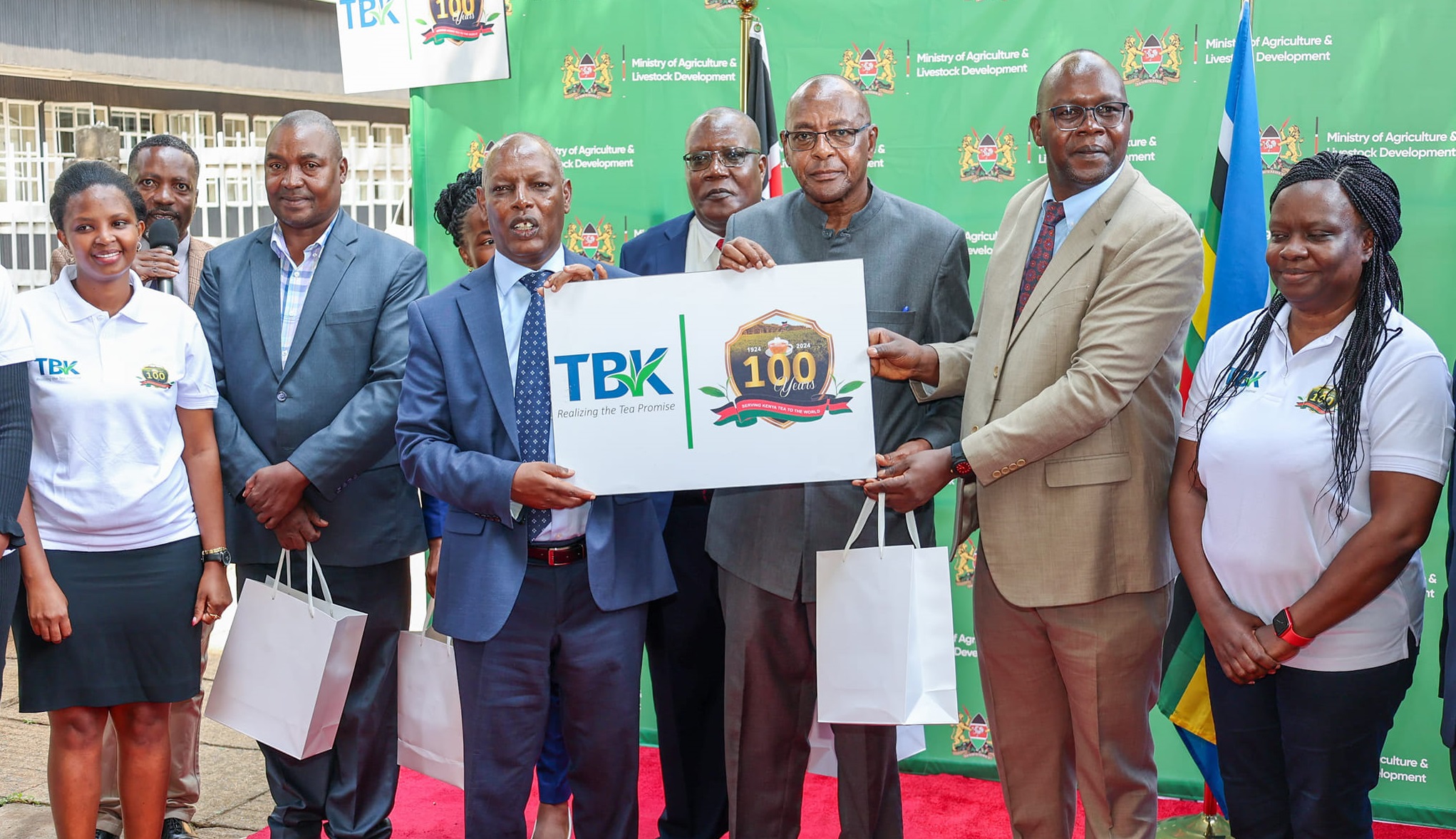Kenya marks 100 years of tea production with a focus on value addition and diversification
JOSEPH NG’ANG’A-KNA
Kenya is adopting value addition and diversification of tea varieties as it marks 100 years of commercially growing tea to meet market expectations.
Agriculture and Livestock Development Cabinet Secretary (CS) Dr. An drew Karanja stated that Kenyan tea has had a tremendous journey, starting from its humble beginnings when the country only exported to one destination at the beginning of the commercialization phase, to its current status, where it is exported to over 90 destinations.
Speaking in Nairobi during the launch of the Kenya Tea Industry Centenary Celebrations hosted by the Tea Board of Kenya, Dr. Karanja emphasized that while Kenya has been exporting tea as a raw material, the country aims to export value-added tea as it looks forward to the next 100 years.
“Further, stakeholders should strive to present tea as a ‘trendy’ beverage for the youth by providing it in more flavors and forms, thereby making tea a true ‘anytime’ beverage, like coffee,” the CS said.
He highlighted that over the years, tea has become a leading foreign exchange earner for Kenya and a source of direct and indirect livelihoods for over six million people along the value chain.
“In 2024, the industry’s earnings from exports hit Sh180 billion, up from Sh138 billion the previous year.
Notably, this year’s performance looks better compared to last year. Up to August this year, export earnings had surpassed last year’s by Sh21 billion, standing at Sh127 billion,” the CS explained.
Dr. Karanja added that tea auctions in Mombasa have expanded to include tea from neighboring countries.
He disclosed that the government recognizes the role of the tea industry in driving the nation’s socio-economic development, explaining that this is why tea forms part of the flagship projects in the agricultural sector under the Bot tom-Up Economic Trans formation Agenda (BETA) initiative.
“The role of tea is anchored on value addition for agricultural produce with a view to ensuring maximum returns across the value chain,” he said.
The CS said currently, several regulations aimed at fully operationalizing the Tea Act, 2020 are nearing completion and his ministry will soon gazette these regulations.
“This will pave the way to full implementation of reforms aimed at ensuring sustainability and enhanced performance of the tea industry,” he said.
The CS said in 2024, tea production will cross the 600 million kilograms mark, and the government will continue sup porting the farmers with inputs like the subsidized fertilizer at Sh2,500 in efforts to ensure quality production.
Dr. Karanja said the ministry is looking at enhancing the quality with focus being on attracting more international buyers.
“The government, together with tea stake holders will be organizing trade missions to some of the countries which we have identified as potential buyers of our tea,” Dr. Karanja said.
The CS said that at the tea auction in Mombasa the government sus pended the minimum price directive which has led to a significant reduction in the volume of un sold tea.
Tea Board of Kenya (TBK) Chairman Jacob Kahiu said the stocks of unsold tea at the Mombasa auction has come down from the highs of 100 mil lion kilograms in 2023 to below 15 million Kahiu said tea plays a big role in the country as about 22 per cent of foreign ex change comes from tea.

